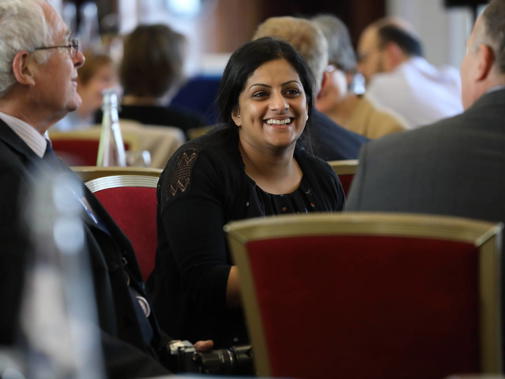The clinical academic workforce is in a parlous state. The total number of full-time equivalent clinical academics has remained static since 2004, yet the number of medical graduates increased by 50%. And that is before the planned doubling of medical student numbers. This poses a clear risk to the education and training of our future colleagues.
The theme of this year’s medical academics conference is a timely one: ‘Underpinning science and scholarship in medicine – ensuring the education and workforce needs are met’.
Attending the conference is a chance to immerse yourself in what’s new in academic medicine, meet influential experts, and potentially even advance your career. Regardless of your career stage, you’ll meet, exchange ideas and form valuable professional relationships with people with diverse backgrounds, peers and experts in your field. It can lead to collaborations, career opportunities, and lasting friendships that extend far beyond the event itself.
The conference also sets policy for MASC (the medical academic staff committee), the BMA’s representative committee of academic doctors. Given that we often have different employers with different contracts and different professional challenges than doctors solely employed by the NHS, we need specific representation. This is a forum in which to ask questions of the BMA and each other, and to influence the issues that uniquely affect medical academics.
The members of MASC have fought hard to preserve pay parity for clinical academics with their NHS colleagues. We have also ensured that consultant clinical academics have the same access to local awards as their NHS colleagues. And for academic doctors in training, we negotiated the academic premium (and are working to improve it) and agreed an honorary NHS contract checklist with NHS employers.
But our work is not done. While we have so far ensured pay parity and got agreement that maintaining it is a BMA-wide policy, we are now working to make Government recognise that our employers, the universities, receive the funds needed to pay for it. Indeed, we have just had a question asked in the House of Commons about this issue.
We also campaign on behalf of medical academics locally and individually. The majority of universities with medical schools are conducting redundancy rounds and in some the focus is on us, the ‘expensive’ clinical academics. MASC is alive to this problem and we’re making strong representations to the universities concerned.
Alongside keynote speeches, the conference offers a range of workshops and seminars. These sessions provide both practical and theoretical knowledge that can be applied to your day-to-day practice. They will give you perspectives and insights from across specialties, so you can see how different aspects of healthcare work together. Whether you’re looking to enhance your academic skills or broaden your understanding of healthcare policy, there is always something new to learn at the medical academics’ conference.
Previous attendees have told us:
‘A brilliant conference. Very useful and comprehensive. It is common to get bored or distracted during a long conference day. This was not the case today. The conference was extremely engaging, and I did not feel the time while kept very focused all the way through.’
‘The hybrid arrangements worked very well for online participants.’
‘Gave a good example of the possible different routes to get to be a clinical academic.’
Very insightful with many different points and diverse points of view.
We cannot address the problems you face unless you tell us, and one way of telling us is to attend the conference. Come and talk, meet colleagues from other institutions and disciplines, and perhaps even propose a motion for debate that addresses an issue affecting you or your colleagues – find out how to write a motion. Submissions will need to be made before 1 April at noon, via email.
Together, we are stronger.
Shree Datta and Lucy-Jane Davis are members of the medical academics conference agenda committee.

